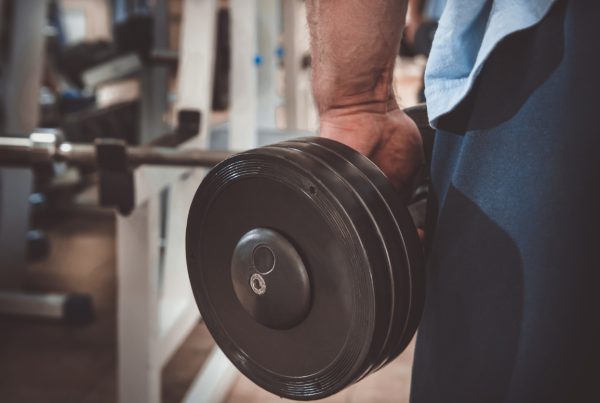By Dr Bunmi Aboaba, Creator of the Food Addiction Coach Accelerator Program
Energy drinks are hugely popular among young people, with an estimated 50% of weekly consumption coming from children and teenagers. Last year, the energy drink industry was valued at $61 billion, with a future projection of $100 billion by 2027. However, regular consumption is linked to serious health effects.
It is vital that children and young people have a balanced and nutritious diet, as well as enjoying regular physical activity, in order to flourish mentally, physically and socially. The importance of diet and exercise for young people’s mental and physical health will be no surprise to those working in the physical activity sector, however, I want to highlight in particular the negative consequences caused by regular consumption of energy drinks.
Inside energy drinks
Energy drinks are marketed as a means to increase alertness, stamina, and energy levels. These drinks are often aggressively marketed towards adolescents to increase sports prowess, concentration when studying, and boost energy if tired.
Some beverages purport to include vitamins, herbs and nutrients such as ginseng, guarana, and taurine. However, the two most significant ingredients are caffeine and sugar. The majority contain approximately 200mg of caffeine — around two cups of strong coffee — and equal sugar to a can of fizzy drink.
There is a severe lack of regulation towards the ingredients of these beverages, as caffeine, sugar, guarana, and taurine are all ‘active’ ingredients which can cause harm. For example:
- Caffeine – Increased anxiety, elevated blood pressure, cardiovascular issues and the risk of seizure and heart failure.
- Sugar – Stress, dental issues, obesity, and type two diabetes.
- Vitamin B – Skin conditions, liver toxicity, blurred vision and nerve damage.
- Stimulants including guarana and taurine – sleep problems, anxiety, restlessness, upset stomach, and quickened heartbeat.
Numerous studies show an association between regular consumption of these drinks and various adverse health effects, including:
- Stress
- Aggression
- High blood pressure
- Increased obesity
- Type 2 diabetes
- Poor sleep
- Nausea and stomach irritation
- Headaches and eye strain
- Dental erosion
- Mental health issues.
Caffeine overdose
Some energy drinks contain as much as 500mg, equivalent to fourteen cans of cola.
The American Academy of Paediatrics recommends a daily limit of less than 100 mg of caffeine for young people aged 12 to 18-years-old. There is no recommended safe limit for children under the age of 12.
Caffeine and other stimulants can cause dangerous changes in heart function and blood pressure, as it stimulates the release of norepinephrine. Norepinephrine is a stress hormone which increases heart rate.
Consuming too much caffeine can cause a caffeine overdose. More than approximately 150-200mg of caffeine per kilogram of body weight is considered lethal. Overdosing on caffeine can cause vomiting, palpitations, high blood pressure, seizures and, potentially, fatality.
The amount consumed to trigger overdose varies, with children and teenagers more susceptible than adults. In 2017, a 16-year-old boy from South Carolina in America, died from a caffeine overdose which triggered a heart arrhythmia after drinking one soda, one latte and an energy drink. Greater education and legislation around energy drinks can help to avoid future cases of caffeine overdose and protect the lives of young people.
Mental health
An important study published earlier this year evidenced the adverse mental health effects of regular energy drink consumption on young people. The study demonstrated that children and teenagers who drank energy drinks each week were likely to have decreased overall wellbeing.
Evidence demonstrated consistent associations between energy drinks and:
- Anxiety and depression
- Self-harm and suicide
- Hyperactivity
- Decreased academic performance
- Headaches
- Irritability and aggression
- Alcohol use and smoking
- Sleep problems
This study found that boys are more likely to consume greater quantities of energy drinks than girls, as were those from lower socio-economic groups.
Healthy alternatives
Encourage your children and teenagers to try one of the below healthy alternatives the next time they are looking for a natural boost:
- Smoothies – fruit and vegetable smoothies are an excellent choice as long as you do not add extra sugars. Berries, citrus, spinach, kale, and parsley are particularly good at boosting energy levels and providing your body and brain with essential vitamins.
- Green tea – for those over the age of 12, green tea can provide many health benefits. Green tea is widely reported to have numerous positive effects on metabolism, heart function, and the brain, and still contains 25-40mg of caffeine.
- Coconut water – packed full of potassium, magnesium, phosphorus, and calcium, coconut water is a healthy and refreshing alternative to energy drinks.
- Water – when dehydrated, our metabolism slows down and we feel tired, drained, and sluggish. Rehydrating with water acts quickly and boosts our energy levels, improves concentration, and elevates our mood. Try adding some fresh fruit to your water for extra vitamins and minerals to provide even more energy.
Want to find out how to help your clients kick sugar cravings for good? Join me for the How to Help Your Client Kick Sugar to the Curb webinar at 11am (BST) on Thursday 23 June.
The Food Addiction Coach is a member of the ukactive Strategic Partner Group – find out more here.
Disclaimer: Any views or opinions expressed are solely those of the author and do not necessarily represent those of ukactive.

More People More Active More Often




